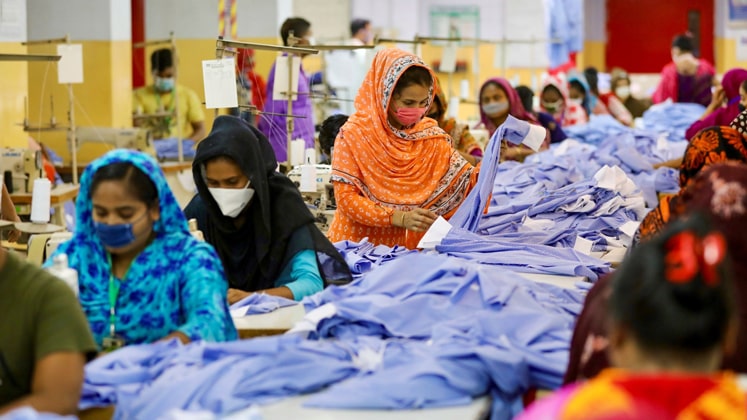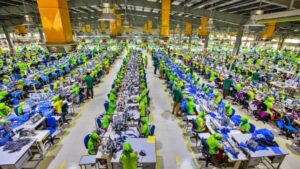
The second session of the board tasked with reassessing the minimum wage of over four million garment workers in Bangladesh ended inconclusively recently without yielding any definitive decision.
Convened at the premises of the Minimum Wage Board in Dhaka, the meeting delved into a range of global and local matters even as the discussions encompassed the prevailing state of the apparel industry, the pricing dynamics of essential commodities, and the rates of garment articles in international markets currently.
Remarkably, no formal proposals were presented during the session by either the employers or the representatives of the workers. This outcome is in alignment with the board’s decision to embark on visits to three distinct types of factories—small, medium, and large—allowing them to directly gather workers’ perspectives on salary expectations.
The president of the Bangladesh National Garment Workers Employees League and a representative of workers on the new board Sirajul Islam Rony expressed his optimism about submitting a comprehensive wage proposal in the upcoming meeting scheduled for the following month even as he emphasised the significance of incorporating workers’ viewpoints into any formal proposal, and also highlighted the consideration of opinions from other trade unions.
Rony clarified that the new wage structure will account for several factors, including workers’ foundational salaries, housing stipends, service-related benefits, assorted allowances, pension entitlements, and nutritional considerations.
A large number of unions operating within the garment sector has advocated a minimum monthly wage of Taka 23,000 while on the other hand, Md Siddiqur Rahman, the representative of the owners on the board, articulated that both the workers’ and owners’ representatives are expected to present their proposals in the upcoming session.






